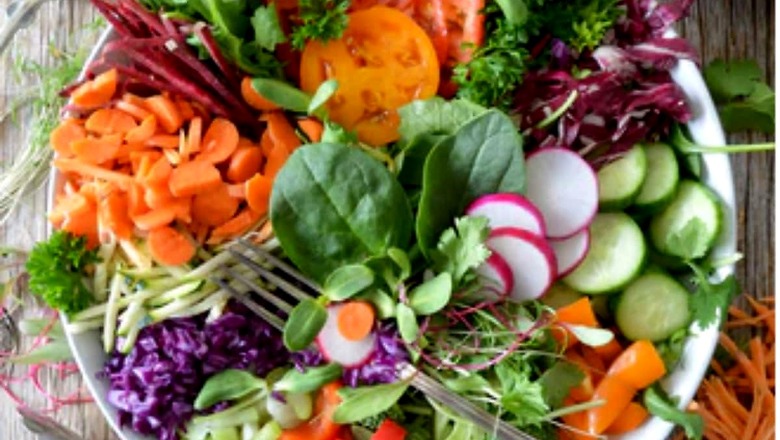
views
There’s no doubt about the fact that veganism is gaining popularity all around the world. Many opt for this diet for ethical and environmental reasons, because as you may already know, a vegan diet is completely plant-based, abstains from animal products and is considered to be free of animal cruelty in all forms.
More recently, people are choosing to opt for a vegan diet for the sake of their health too. This is because apart from a slimmer waistline, a vegan diet also promises many other health benefits. However, like with most diets, the vegan diet comes with its own set of concerns too. So, before you jump onto the vegan wagon, here’s what you need to know about the diet.
1. The shift isn’t easy or cheap
Whether you’re currently a vegetarian or non-vegetarian, the first thing you have to know is that making the shift to veganism is not child’s play. You might be motivated to make the shift out of ethical or health concerns ? and that’s always appreciable ? but know that this means restructuring your entire life and kitchen. The restructuring is more intensive for non-vegetarians, but Indian vegetarians also consume a lot of milk, ghee, paneer and other animal products and all of these will have to be eliminated.
It’s also important to remember that this shift isn’t going to come cheap. The best sources of vegan nutrition, including nuts, nut milk and nut butter, do not come cheap. The best thing to do in this regard is to find out what the local market and agricultural sector has to offer in terms of affordable as well as nutritious vegan options.
2. What to eat
Any food that doesn’t come from an animal source is good to go where the vegan diet is concerned. This basic parameter as well as India’s rich food culture makes the vegan diet extremely versatile while ensuring that locally-sourced ingredients can be utilized to the max.
Sure, you might be tempted to go for tofu, kale, quinoa and almond flour or milk, but explore Indian greens like brahmi and poi, grains like ragi, barley and pearl millets and maybe try a few regional peanut chutney recipes (which are usually and traditionally vegan anyways) instead of spending a fortune on almond butter. Include all types of seasonal fruits, vegetables, nuts, seeds, grains, legumes and pulses in your vegan diet.
3. What to avoid
All types of animal products, including milk (from any animal source), ghee, cream, butter and paneer, are eliminated from the vegan diet. Obviously, this means no eggs, chicken, fish, seafood or meat in your diet. What many don’t realise is that veganism also excludes foods like honey, whey, gelatin, animal-derived vitamin D3 supplements and fish-derived omega-3 fatty acid supplements like cod liver oil.
4. Benefits of vegan diet
Because veganism is a completely plant-based diet, it has many health benefits to impart. Eating more fruits, vegetables, complex carbs and sources of vitamins, minerals and antioxidants may help you lose weight. But what’s more is the fact that a vegan diet can help you control blood sugar levels, prevent diabetes, improve heart health and kidney function, prevent arthritis, cancer and even diseases like Alzheimer’s according to many studies.
5. Side effects of vegan diet
Despite all these benefits, you should know that a poorly planned or maintained vegan diet can lead to nutritional deficiencies, which in turn can lead to severe health issues. Studies show that since vegans abstain from all animal-based foods and animal-derived products, they can have deficiencies of nutrients that are exclusively or predominantly found in animal sources.
This includes vitamin D, vitamin B12, omega-3 fatty acids, iodine, iron, calcium and zinc. If you are planning to take up the vegan diet, it is necessary that you consult a doctor about preventing any of these nutritional deficiencies from showing up by taking plant-based supplements.
For more information, read our article on Vegan diet.
Health articles on News18 are written by myUpchar.com, India’s first and biggest resource for verified medical information. At myUpchar, researchers and journalists work with doctors to bring you information on all things health.



















Comments
0 comment